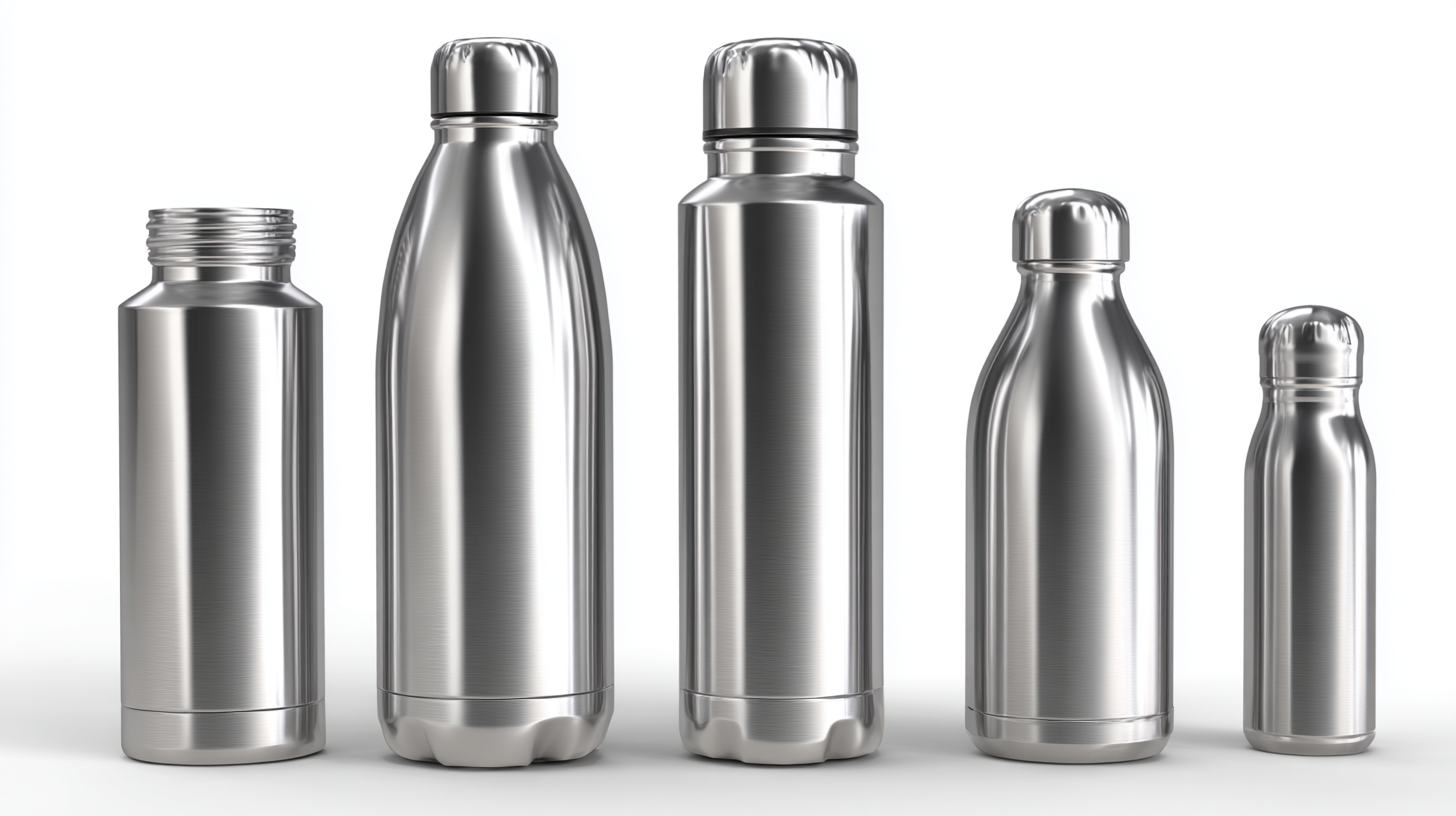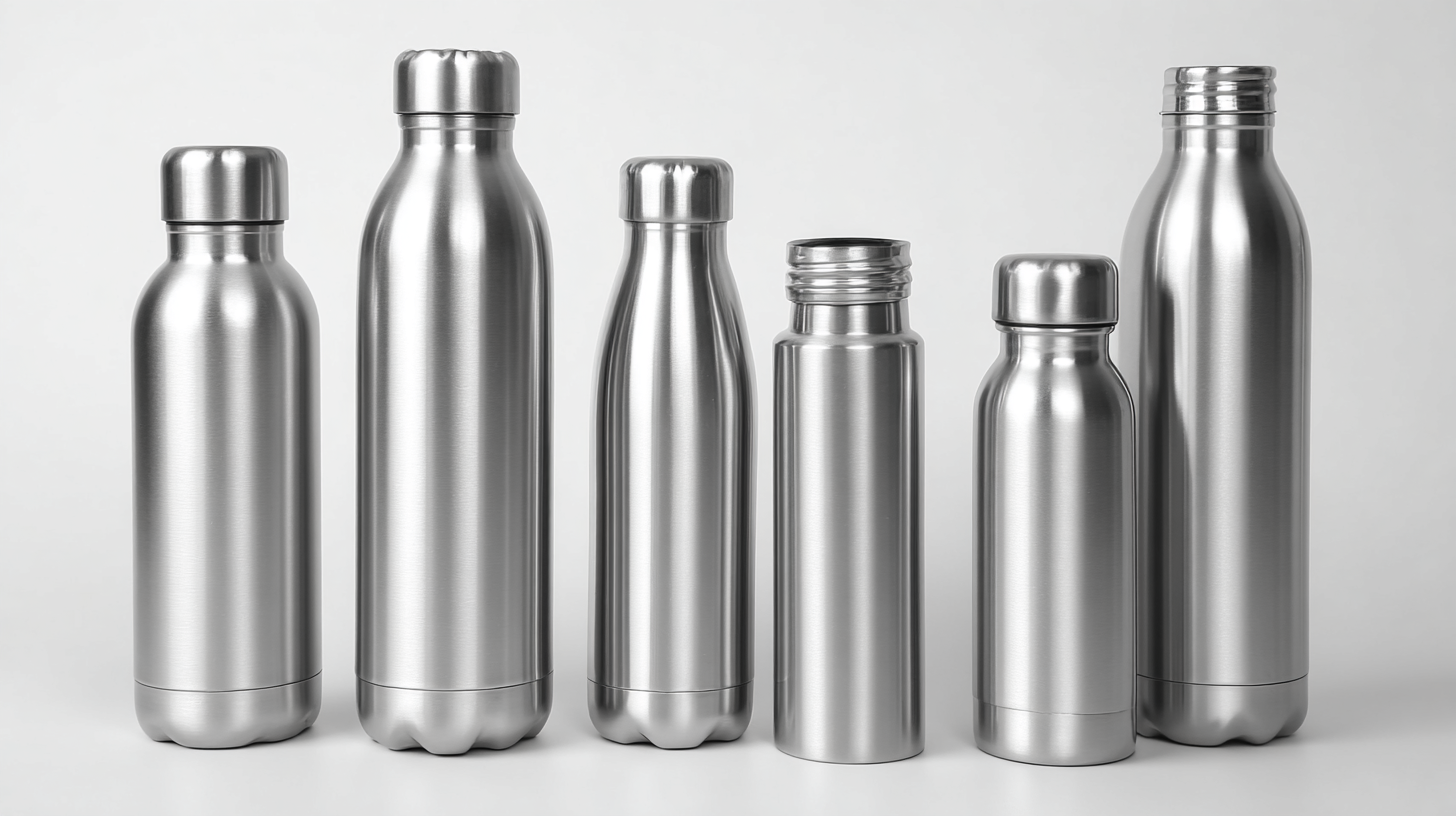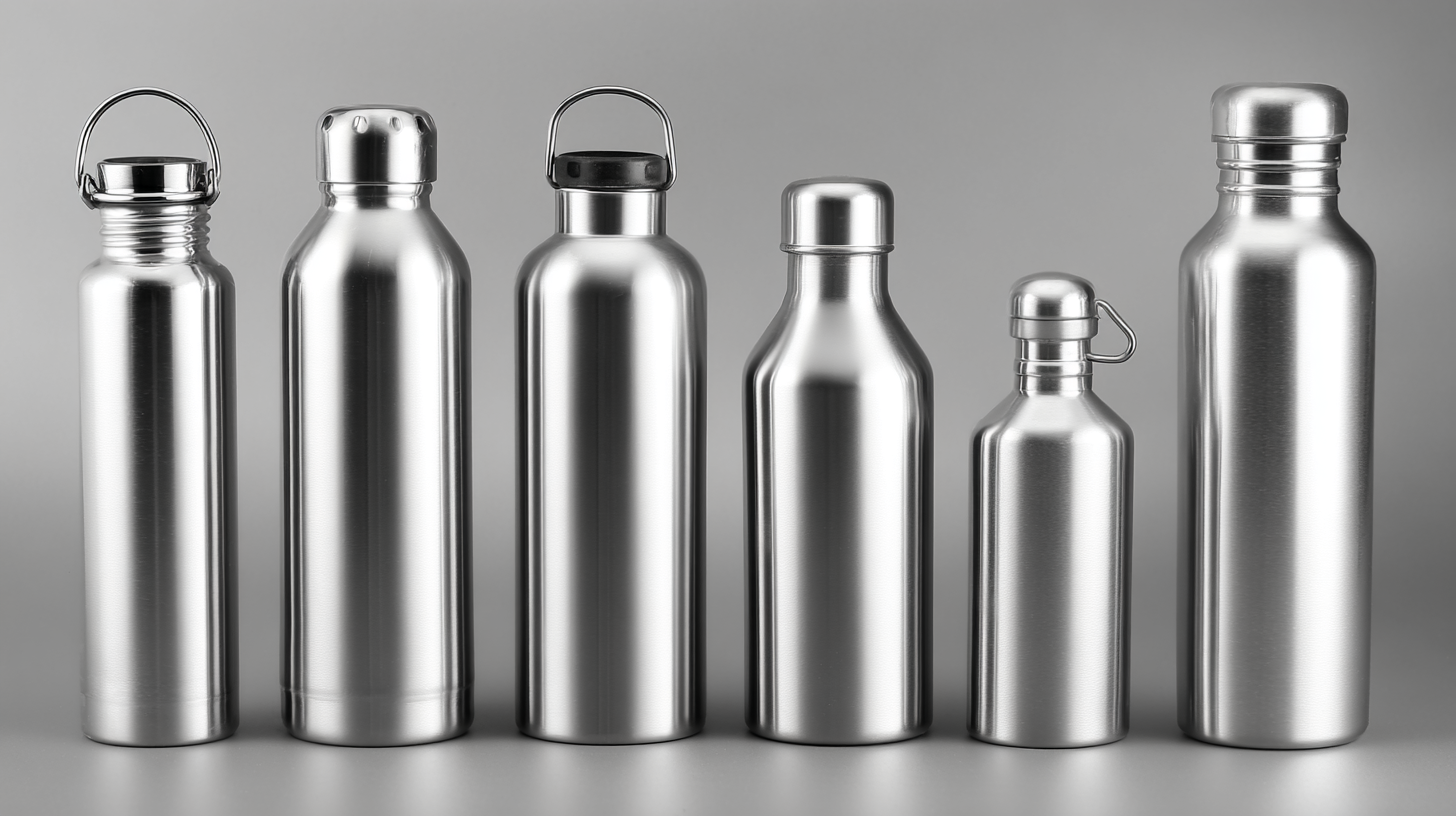
Navigating Compliance Challenges in Manufacturing Best Stainless Steel Bottles
In the increasingly competitive landscape of the manufacturing industry, compliance with regulations and standards has become paramount, particularly for products like stainless steel bottles. According to a 2022 report by Grand View Research, the global stainless steel bottles market is projected to reach USD 10.8 billion by 2028, growing at a CAGR of 5.8% from 2021. This surge in demand necessitates rigorous adherence to safety, quality, and environmental guidelines, making it crucial for manufacturers to navigate complex compliance challenges. From sourcing food-grade materials to ensuring sustainable production practices, every step impacts not only regulatory standing but also marketability and consumer trust. As manufacturers strive to produce the best stainless steel bottles, understanding the compliance landscape is essential for success in this thriving sector.

Understanding the Importance of Compliance in Stainless Steel Bottle Manufacturing
In the manufacturing of stainless steel bottles, compliance is paramount to ensure safety, sustainability, and marketability. Understanding regulatory requirements not only protects consumers but also enhances brand reputation. Manufacturers must stay informed about guidelines from agencies such as the FDA and EPA, which govern the materials used and the overall environmental impact of production.
Tip: Regular training sessions for staff on compliance standards can significantly reduce the risk of non-compliance. Establishing a culture of awareness and accountability ensures everyone in the organization understands their role in maintaining adherence to regulations.
Another vital aspect is conducting regular audits of the manufacturing process. This not only helps identify areas of non-compliance but also fosters continuous improvement in quality and safety protocols. By implementing a robust quality control system, manufacturers can detect compliance issues early and rectify them efficiently.
Tip: Utilize third-party audits to gain an unbiased perspective on compliance practices. These external evaluations can provide insights that internal teams might overlook and help strengthen overall compliance strategy.

Key Regulations Impacting the Production of Stainless Steel Bottles
When it comes to manufacturing stainless steel bottles, compliance with key regulations is essential to ensure product safety and marketability. The U.S. Food and Drug Administration (FDA) plays a crucial role in regulating materials that come into contact with food and beverages. According to a recent report by the International Stainless Steel Forum (ISSF), nearly 65% of stainless steel produced globally is used in applications related to food and beverage. Manufacturers must ensure that their products meet FDA standards for food-safe materials, thus avoiding costly recalls and maintaining consumer trust.
Additionally, the European Union's REACH (Registration, Evaluation, Authorization, and Restriction of Chemicals) regulation imposes significant requirements on manufacturers. A study from the European Chemical Agency indicates that over 145,000 chemical substances are registered under REACH, compelling manufacturers to demonstrate compliance regarding the materials used in stainless steel production. Non-compliance can lead to severe penalties and supply chain disruptions, which can impact the overall competitiveness of manufacturers in the stainless steel bottle sector. Understanding and navigating these regulations is crucial for companies aiming to thrive in this highly regulated market.

Best Practices for Ensuring Quality and Compliance in Manufacturing Processes
In the manufacturing of stainless steel bottles, ensuring compliance with industry standards is vital for both product quality and consumer safety. According to a recent report by Smithers Pira, the global market for stainless steel bottles is projected to reach $1.5 billion by 2025, highlighting the growing demand for durable and eco-friendly alternatives to plastic. To meet this demand while adhering to stringent regulations, manufacturers must integrate best practices throughout their production processes.
One effective strategy is to implement a robust quality management system (QMS) that aligns with internationally recognized standards, such as ISO 9001. Research from the International Organization for Standardization indicates that companies with a certified QMS often experience a 10-15% reduction in nonconformities, leading to enhanced product consistency. Additionally, regular audits and employee training on compliance protocols can significantly decrease the risk of violations, thereby ensuring that every stainless steel bottle produced not only meets but exceeds customer expectations and regulatory requirements. As the industry evolves, prioritizing quality and compliance will be essential for manufacturers aiming to maintain a competitive edge.
Navigating Compliance Challenges in Manufacturing Best Stainless Steel Bottles
Overcoming Common Compliance Challenges in the Manufacturing Sector
In the manufacturing sector, compliance challenges can significantly impede productivity and innovation. A recent report indicates that nearly 70% of manufacturers face difficulties in adhering to regulatory standards, largely due to the rapid pace of technological changes and evolving industry regulations. This struggle is reminiscent of compliance issues seen in other sectors, such as crypto adoption among small and medium enterprises, where approximately 65% of firms encounter regulatory hurdles when integrating new financial technologies.
One effective strategy to overcome these compliance challenges involves adopting a proactive approach to risk management. By leveraging data analytics, manufacturers can better forecast potential compliance hurdles and develop tailored solutions. Current trends suggest that implementing robust compliance frameworks could enhance operational efficiency by up to 25% while ensuring adherence to ESG criteria. This is particularly vital as manufacturers aim to align with sustainability goals, which are increasingly being prioritized by both consumers and regulators alike. Through focused investments in technology and employee training, manufacturers can not only meet compliance requirements but also foster a culture of continuous improvement and innovation in their operations.
The Role of Global Standards in Enhancing Product Trustworthiness and Quality
In the ever-evolving landscape of manufacturing, compliance with global standards is paramount for enhancing the trustworthiness and quality of stainless steel bottles. According to a report by the Global Stainless Steel Council, the stainless steel market is projected to grow by 5% annually, underscoring the increasing demand for high-quality, safe products. However, manufacturers face stringent regulations, such as the FDA’s guidelines on food-grade materials, which mandate thorough testing to ensure safety and durability. Adhering to these standards not only assures consumers of a product’s quality but also helps brands differentiate themselves in a competitive market.
Moreover, adherence to international standards such as ISO 9001 can significantly boost a manufacturer’s credibility. The International Organization for Standardization reported that companies implementing these quality management systems experience up to a 30% increase in operational efficiency. For manufacturers of stainless steel bottles, this means better resource management and reduced waste, ultimately contributing to sustainability. As consumers become increasingly aware of product safety, manufacturers that align with global standards will foster greater trust and confidence in their offerings, paving the way for long-term industry success.
Navigating Compliance Challenges in Manufacturing Best Stainless Steel Bottles - The Role of Global Standards in Enhancing Product Trustworthiness and Quality
| Dimension | Compliance Standard | Certification Body | Application Area | Notes |
|---|---|---|---|---|
| Material Quality | ISO 9001 | International Organization for Standardization | Quality Management | Ensures consistent quality in production |
| Product Safety | ASTM A240 | ASTM International | Material Specifications | Defines the chemical composition for stainless steel |
| Environmental Impact | ISO 14001 | International Organization for Standardization | Environmental Management | Helps organizations improve their environmental performance |
| User Health | FDA Regulations | Food and Drug Administration | Consumer Products | Ensures products are safe for consumer use |
| Traceability | ISO 22005 | International Organization for Standardization | Food Supply Chain | Ensures traceability throughout the supply chain |
